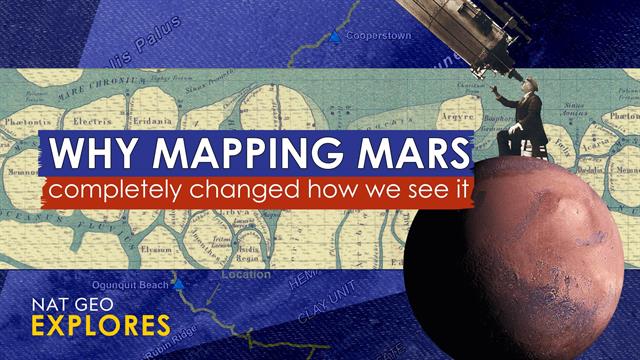3-ton parts of Stonehenge may have been carried from earlier monuments
Years of archaeological research now suggest that Neolithic Britons lugged massive elements of the iconic monument from far-flung reaches of the island.

Families are leading a new wave in Black travel. Here’s why
For many parents, showing their kids the world is about both the past and the future.

Bonus Episode: In Conversation: Reframing Black History and Culture
National Geographic presents In Conversation, a special podcast episode featuring explorer Tara Roberts, computer scientist Gloria Washington, and photographer Ruddy Roye. Through their dynamic work across maritime archeology, artificial intelligence, and pho…

Why mapping Mars completely changed how we see it
Mars has drawn our attention for millennia, and it was when we started mapping the planet that we began to see it as a place, and a destination. Early mapmaking led to scientific discoveries—and a few far-fetched theories—which changed how we see the planet t…

How these feuding map-makers shaped our fascination with Mars
One was an artist who loved space. His rival was a bold professional astronomer. Their race to map the red planet sparked decades of science and speculation.

Can robots help keep us safe?
Automated machines are increasingly common—here’s where you might see them next.

U.S. has secured 200 million more doses of COVID-19 vaccines
These are the COVID-19 vaccine prospects that have made it to phase three trials and beyond.

Go island-hopping in Palawan, the Philippines
With a dazzling array of activities and safety protocols in place, this leafy archipelago could be a good option for a “new normal” getaway.

A new sensation: recording and reproducing taste
Meiji University scientist has found a way to reproduce taste, just as we’ve long been able to do for sight and sound.

Episode 3: Why War Zones Need Science Too
Undaunted by Yemen’s civil war, National Geographic explorer Ella Al-Shamahi searches on the island of Socotra for traces of the earliest known humans to leave Africa.









